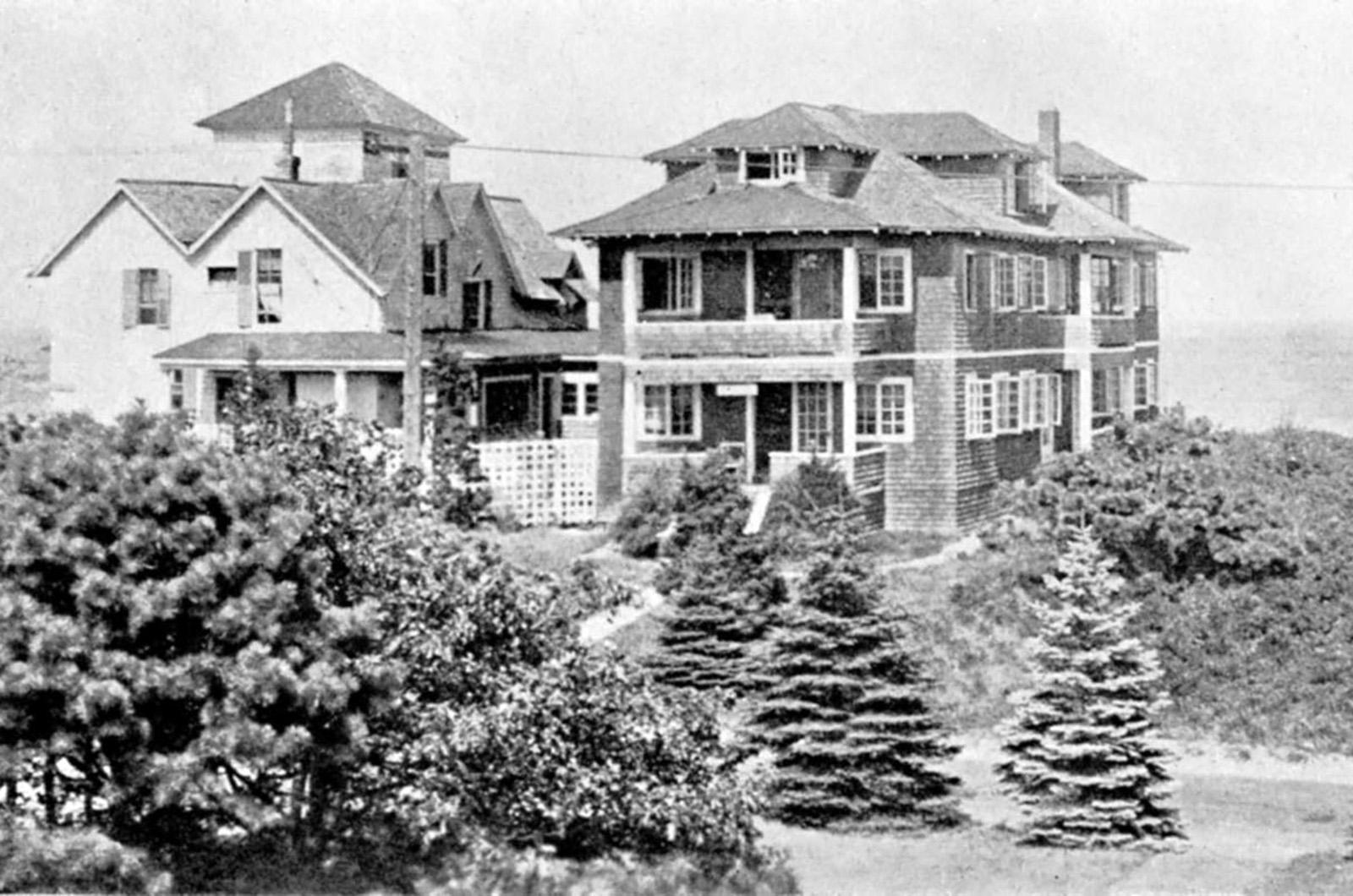As this summer departs, I am remembering summers long past, during the 1940s and ‘50s, that were so different from today’s Vineyard summers.
I was reminded of them by Shirley Stevens Kennedy of Vineyard Haven, whom I had never met until recently. We spoke on the phone, two nonagenarians sharing our memories, many of which intersected.
Shirley’s mother, Mae Christiansen, had been the bookkeeper for Vineyard Gazette co-editor and publisher, Henry Beetle Hough, in the 1950s. That was the same time period when I was rescued by Mr. Hough and his wife Elizabeth Bowie Hough, Gazette co-editor and publisher. The rescue was from being a summer chambermaid at the Ahoma Inn on East Chop.
Shirley, too, it turned out, had worked at the Ahoma Inn. It stood on Brewster avenue between the East Chop Tennis Club and the bluffs. It was simple but sedate, with a martinet owner.
Shirley had been a waitress there, and Miss Flora Jordan, the owner, only paid waitresses their wages at the end of the summer, Shirley remembered. However, Miss Jordan gave them time off for a midday swim at the East Chop Beach Club.
Before my Ahoma Inn days, I told Shirley, I had a summer job at Luce’s Ice Cream and Candy Parlor. It overlooked the harbor from just behind the Vineyard Haven boat dock. Of course, it afforded a fine waterfront view to visitors enjoying ice cream and cake.
Shirley remembered calling Luce’s “The Double Decker” because of its upstairs room with tables and chairs for diners.
We talked, too, of the Mansion House in Vineyard Haven, where I had worked as a short-order cook and snack bar waitress. There, I learned that to get tips I must identify seamen from the boat as manly and give them their coffee in mugs, and recognize men who were summer visitors as more genteel and give them their coffee in cups.
Shirley remembered rocking in the big rocking chairs on the Mansion House porch after school.
As Shirley and I continued to talk, it turned out that she, like me, had ushered at the Rice Playhouse on East Chop.
The Rice Playhouse was outstanding among summer theatres and theatre schools. It was there that Patricia Peardon, later a Broadway actress famous for her role as the star of Junior Miss, had studied, as had Hollywood actor Clifton Webb.
Sadly, the murder of an elderly woman studying at the theatre’s school, combined with the death of Phidelah Rice, who ran the school and theatre with his wife, and the arrest of Phidelah’s brother, who was falsely accused of the murder, led to the sale of the theatre.
I told Shirley that the night of that murder, my brother and I had walked past the dormitory where it occurred at about the time that it had happened.
Shirley recalled walking after a storm along the wooden bulkhead that was then below the East Chop bluffs. The day before, a rowboat with two boys in it had been swept out of Oak Bluffs harbor. The frightened boys had jumped overboard and one had been lost. Shirley, looking down from the bluffs, had seen the body of the drowned boy lying there and called the police to report it.
As children, we both frequented Sone’s Japanese Store on Circuit avenue in Oak Bluffs. Shirley’s favorite purchase there had been clamshells that when opened in water revealed flowers inside.
I remembered having a Japanese doll in a beautiful silk kimono that had been bought there. Shirley told me that the Japanese lanterns that festooned the Tabernacle and the cottages of the Methodist camp grounds at the Martha’s Vineyard Camp Meeting Association on Illumination Night originally came from Sone’s. The store’s kindly owners, Shirley and I both sadly recalled being told, had been sent to an internment camp following Pearl Harbor. After World War II ended, they never returned.
We also recalled Hoyle’s Store that sold fishing tackle and where we bought firecrackers for the Fourth of July. There were also miniature houses to buy and set on fire when you were out on the street.
Our mothers bought fruit and vegetables and meat at Irving Kligler’s Central Market. Years later, Irving Kligler would be largely responsible for the creation of the Martha’s Vineyard Regional High School that replaced the town high schools.
Shirley and I talked of Darling’s Old Popcorn Store where we could buy pink wintergreen or white vanilla or brown chocolate popcorn bars, or simply watch the arms of the taffy machine moving up and down making salt water taffy.
Shirley remembered roller skating in the Tivoli, a tall building across from the Flying Horses. It was there, years before when my father was young, that he learned to dance when it was a ballroom. I had ushered there after the Rice Playhouse was gone and the Tivoli housed a summer theatre for a time.
Shirley recalled her mother working in Henry Hough’s front office of the Gazette. Under the rolltop desk, the Hough family collie of those days, Captain Matrix, always slept. His name, in the hot type printing times, was a tribute to the Gazette, for “matrix” was the word for a mold for hot type.
I remembered the desk I had in the first floor “city room.” In the side yard beside my window, an apple tree flourished. Betty Hough ruled over that room, assisted by crackerjack proofreader Florence (Bunny) Brown who knew everyone and everything in Edgartown.
Our conversation eventually ended, but Shirley and I made plans to talk again soon to discover new intersections of our Vineyard lives.




Comments (3)
Comments
Comment policy »